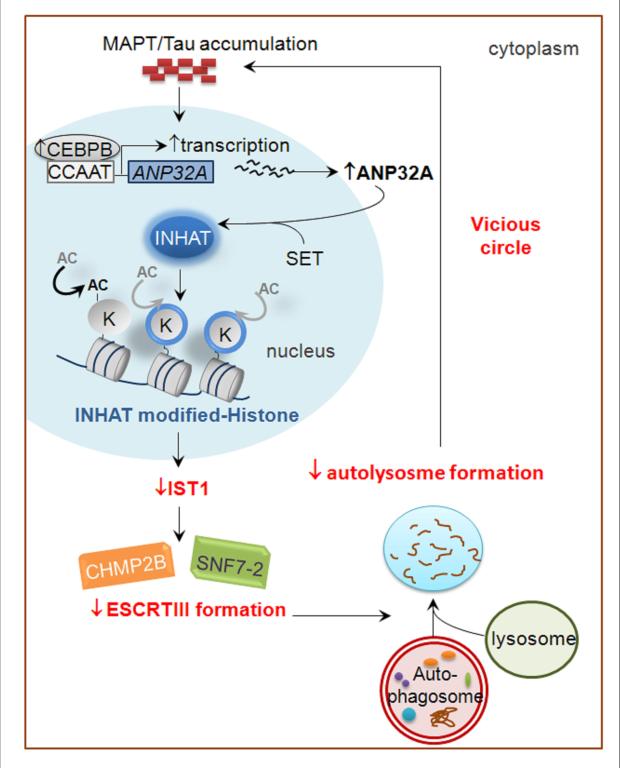On May 13,EMBO Rep(Impact Factor 8.749), an internationally renowned journal, published online the research achievement of the team of Professor Liu Gongping and Professor Wang Jianzhi, Department of Pathophysiology, School of Basic Medicine: Tau accumulation triggers STAT1-dependent memory deficits by suppressing NMDA receptor expression.

Alzheimer’s disease (AD) is the most common neurodegenerative disease in the elderly without effective diagnosis or treatment at present. One of the typical pathological features of AD is neurofibrillary tangles formed by abnormal aggregation of Tau protein. Numerous studies have shown that abnormal aggregation of Tau protein can triggersynuclein toxicity, but now the molecular mechanism is not clear. In cells of overexpressing human full-length tau (hTau) protein, the team of Professor Wang Jianzhi and Professor Liu Gongping found significant changes in the levels of 520 kinds of mRNA. At the same time, the transcriptional activity of STAT1 was significantly up-regulated in the screening of transcription factor activity. Activation of STAT1 was observed in the hTau transgenic mice, mice overexpressing AAV-hTau virus and brain tissues of AD patients. Conditional knockout of STAT1 can significantly reverse transcriptional inhibition and learning and memory disorder of hTau synapse-associated protein NMDARs. Chromatin immunoprecipitation showed that STAT1 could directly combine with the NMDARs promoter region; luciferin reporter gene found that STAT1 had transcriptional inhibition on NMDARs. Additionally, hTau accumulation was found to activate JAK2, which mediates increase and activation of phosphorylation level of STAT1. The use of inactivated mutant virus of STAT1-Y701F can inhibite the activation of STAT1 and reverse the synuclein toxicity induced by hTau. The study found that htau accumulation inhibits NMDARs transcription by activatingJAK2-STAT1 pathway, thereby reducing synaptic plasticity and leading to learning and memory impairment. The study revealed a new pathogenesis of AD, which is expected to provide a new target for AD drug development.
The research is jointly completed by doctoral candidates, Li Xiaoguang and Hong xiaoyue. Li Xiaoguang (2012 straight doctoral student of Prof. Wang Jianzhi) and Hong Xiaoyue (2016 doctoral student of Prof. Liu Gongping) are the co-first authors, Professor Liu Gongping and Professor Wang Jianzhi are the co-corresponding authors, and Huazhong University of Science and Technology is the first publishing unit. The project was funded by the National Natural Science Foundation of China (NSFC) on general project and key project, the Ministry of Science and Technology on the national key research and development program for chronic disease.
